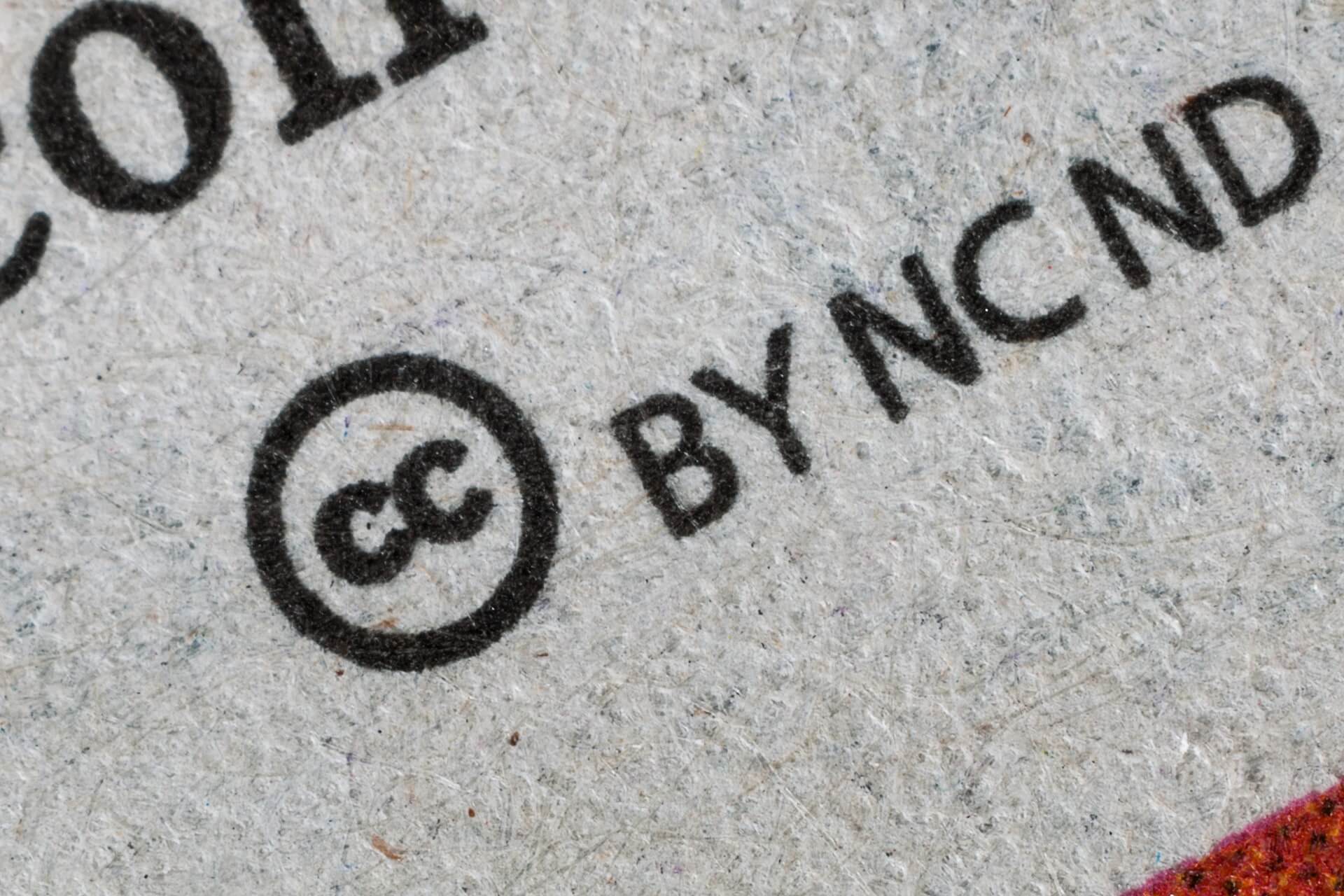Blog
Beware Creative Commons
You may not be too familiar with what Creative Commons is about, but chances are that you've scrolled past one of those black-and-white CC logos and concluded that it denotes music, writing, or images that are free for anyone to use how they like. Well, it's not quite that simple.
Creative Commons is a worldwide non-profit organization that established and maintains legal conventions for authors to decide what they will and won't allow users to do with their art. There are six main license configurations with which you can mark your work:
CC BY
Anyone can use the work however they like, but they must credit the author.
CC BY-NC
As CC BY, but the work may only be used for non-commercial purposes.
CC BY-SA
As CC BY, but if they change the work, they must share it with the same BY-SA license (not with a more restrictive BY-NC license, for example)
CC BY-NC-SA
As CC BY-SA, but the work may only be used for non-commercial purposes.
CC BY-ND
Anyone can use the work, but they may not make any changes at all, and they must credit the author.
CC BY-NC-ND
As CC BY-ND, but the work may only be used for non-commercial purposes.
CC0
All possible legal rights waived.
People adding a Creative Commons license to a given track have generously chosen to waive some of their rights to it – unless they've chosen the CC0 declaration (i.e. fully released it into the public domain). This can be a boon for creators, but not always:
- Licenses that allow monetization still require you to clearly credit the creator somewhere in the work. The work isn't truly copyright-free.
- ND licenses prohibit you from adding the track to a video under any circumstances, as that would fall under the definition of "modifying" the track.
- No matter what Creative Commons license the track has, you will never have exclusivity to it. Anyone else can use the same track in their vlog or presentation.
- Most importantly: YouTube has no idea what licenses are involved when its ContentID system notices that someone else has used the same track as you. Your video may be muted or taken down, and it's up to you to prove that you have the right to use the track before YouTube will reinstate your video.
Creative Commons can be a good place to source incidental music here and there, but to really complete your vision, owning an original track outright (music that has never been released before) is the best way to guarantee that your video will remain on YouTube unhindered. This is where Soundvase comes into its own, with its exclusive royalty-free non-copyrighted music that you own outright, forever.
Creative Commons is a worldwide non-profit organization that established and maintains legal conventions for authors to decide what they will and won't allow users to do with their art. There are six main license configurations with which you can mark your work:
CC BY
Anyone can use the work however they like, but they must credit the author.
CC BY-NC
As CC BY, but the work may only be used for non-commercial purposes.
CC BY-SA
As CC BY, but if they change the work, they must share it with the same BY-SA license (not with a more restrictive BY-NC license, for example)
CC BY-NC-SA
As CC BY-SA, but the work may only be used for non-commercial purposes.
CC BY-ND
Anyone can use the work, but they may not make any changes at all, and they must credit the author.
CC BY-NC-ND
As CC BY-ND, but the work may only be used for non-commercial purposes.
CC0
All possible legal rights waived.
People adding a Creative Commons license to a given track have generously chosen to waive some of their rights to it – unless they've chosen the CC0 declaration (i.e. fully released it into the public domain). This can be a boon for creators, but not always:
- Licenses that allow monetization still require you to clearly credit the creator somewhere in the work. The work isn't truly copyright-free.
- ND licenses prohibit you from adding the track to a video under any circumstances, as that would fall under the definition of "modifying" the track.
- No matter what Creative Commons license the track has, you will never have exclusivity to it. Anyone else can use the same track in their vlog or presentation.
- Most importantly: YouTube has no idea what licenses are involved when its ContentID system notices that someone else has used the same track as you. Your video may be muted or taken down, and it's up to you to prove that you have the right to use the track before YouTube will reinstate your video.
Creative Commons can be a good place to source incidental music here and there, but to really complete your vision, owning an original track outright (music that has never been released before) is the best way to guarantee that your video will remain on YouTube unhindered. This is where Soundvase comes into its own, with its exclusive royalty-free non-copyrighted music that you own outright, forever.
